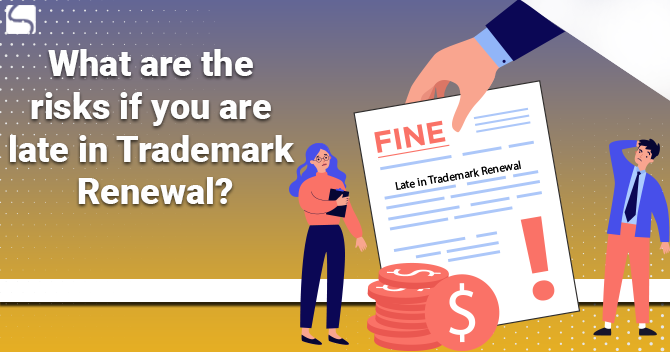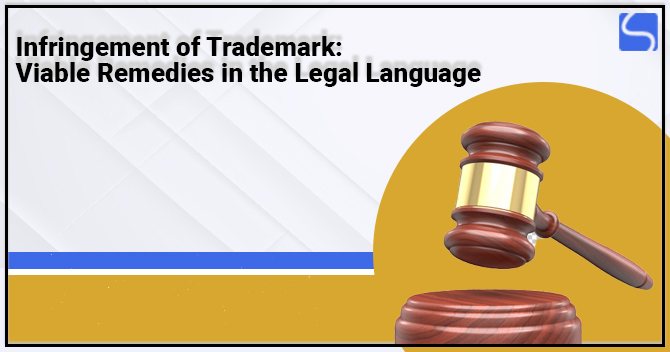Concept of Deceptive Similarity in Trademarks – An Overview

Karan Singh | Updated: Jun 17, 2021 | Category: Trademark
A similar deceptive Trademark is an idea that can be understood as the Trademark created, almost the same or a look-alike of an already in existence Trademark to deceive and create confusion among the clients. This concept has been discussed in the Trademarks Act, 1999. As per Section 2(h) of the Act, a Trademark should be considered deceptively similar to another Trademark if it nearly resembles the other mark as likely to mislead or create any confusion in peoples’ minds.
Table of Contents
What is the Meaning of Deceptive Similarity in Trademarks?
The idea of deceptive similarity has broadly recognised as one of the grounds for infringement of Trademark under the various Trademark regimes. Under the Indian lawful system, the misleading similarity is also considered as the ground for not granting a Trademark Registration to a candidate by the Trademark Registrar.
However, the Act of Trademark doesn’t ascertain any specific criteria which can decide the range & scope of this phrase “deceptive similarity”. To remove the gap, it is essential to note a judicial stand on the cases concerning the proposed matter. For this, the Indian Judicial Courts have deal with different cases providing landmark judgements & rules in the matters of misleading similarity. For determining cases of the intellectual properties & misleading similarity, the principle of phonetic & visual similarity, goodwill, reputation, a test of likelihood, etc., have been identified as criteria to test the idea of misleading similarity by the Judiciary.
Vital Cases Regarding the Judicial View in Deceptive Similarity Matter
The policy of misleading similarity is broadly used in the Judicial Courts as the Trademark violation[1] matters. Trademark plays an essential in a business, and its goodwill of high need for safeguarding the Trademark from being infringed & misused. Judiciary has taken curiosity in the matters of IPRs and their principles. The Judiciary has also focused on the matter after the problems have caused concerning the deceptive similarity.
The guidelines have been given by the judicial decisions to make adjudication of cases of Trademark violation much smoother. It is obvious from the cases, as discussed below that the courts are going beyond the literal meanings of the legislations to deliver justice and protecting the rights of the traders & safeguarding the customer’s interests as well.
Case: SM Dyechem Ltd. V. Cadbury (India) Ltd.
In this case, the applicant has commenced a business of selling & chips under the Trademark name “PIKNIK”. Later on, the defendant has also initiated the business of chocolates under the brand name “PICNIC”. A suit was filed alleging a Trademark violation has been done. The Court held that the Trade Marks have not been in a group of deceptive similarity as they are different in look and has a different composition of words.
Case: Govind Yadav & Anr V. M/S Allied Blenders & Distillers Pvt. Ltd.
In this case, the candidate claimed that the Trademark of defendant “Fauji” has deceptive similarity as the applicant has “Officer’s Choice”. The claim has been made on the level of similarity of a concept in making of the Trademarks as a term “Fauji”, which means a military officer in Hindi translation.
But, both parties are in the alcoholic beverages business. Moreover, the packaging of both the bottles was also the same. The trade dress plays a vital role in deciding the cases of Trademark violation. In this case, the Court has held that there is no misleading similarity between the Trademarks “Officer’s Choice” & “Fauji”. Hence, the Trademark violation suitcase was dispersed.
Case: M/S Subhash Trading v. M/S Lakme Ltd.
In this case, the candidate was a cosmetic products seller under the name of the Trademark “Lakme”, and the accused was also selling the same products under the name of “LikeMe”. The case of a Trademark violation was filed by the applicant. The High Court held that the names of the brand have not been in a group of deceptive similarity. These both brand names are two separate marks with the difference in the spelling & its appearance.
Case: Cadila Pharmaceutical Ltd. V, Cadila Health Care Ltd.
In this matter, the Supreme Court has held come guidelines for adjudication of matters concerning the deceptive similarity in Trademarks. In this particular case, the parties of the case were the successors of a Cadila group. The argument has arisen on a problem of selling of the medicine by a defendant under the name called “Falcitab”, which was similar to the medicine name that has been manufactured by the applicant also under the name of the “Falcigo”.
Both such drugs were used to treat similar disease. Hence, the disputation was raised that the brand name of the defendant is creating a misunderstanding among the consumers. The injunction was pleaded by a candidate. As in cover, the defendant has claimed that the prefix “Falci” has been derived from a disease name, i.e., Falcipharam malaria.
The Court has noticed that because of a diversified population in the nation, the infrastructure of the medical profession is not so broad, so there can be probabilities of medical carelessness. But, it is vital that confusion of Trademarks should be severely prevented in the case of drugs & pharmaceuticals. Hence, the Court held that while name the medical items, one should take more care. The brand name, hence, being phonetically the same and will amount to deceptively same.
Conclusion
Trademarks play an essential role in creating a brand name popular and goodwill of any business. Not only does it aid in establishing the brand value however it also helps in generating revenue. Being such important, the Trademark is unprotected from getting misused or infringed. One such way of Trademark is making similar deceptive Trademarks. Therefore, to avoid deceptive similarity and register your Trademark with a distinctive name. Contact an expert or professional who will help you with Trademark Registration.
Read our article:An Overview of Trademark Litigation on Infringement & Passing-Off














